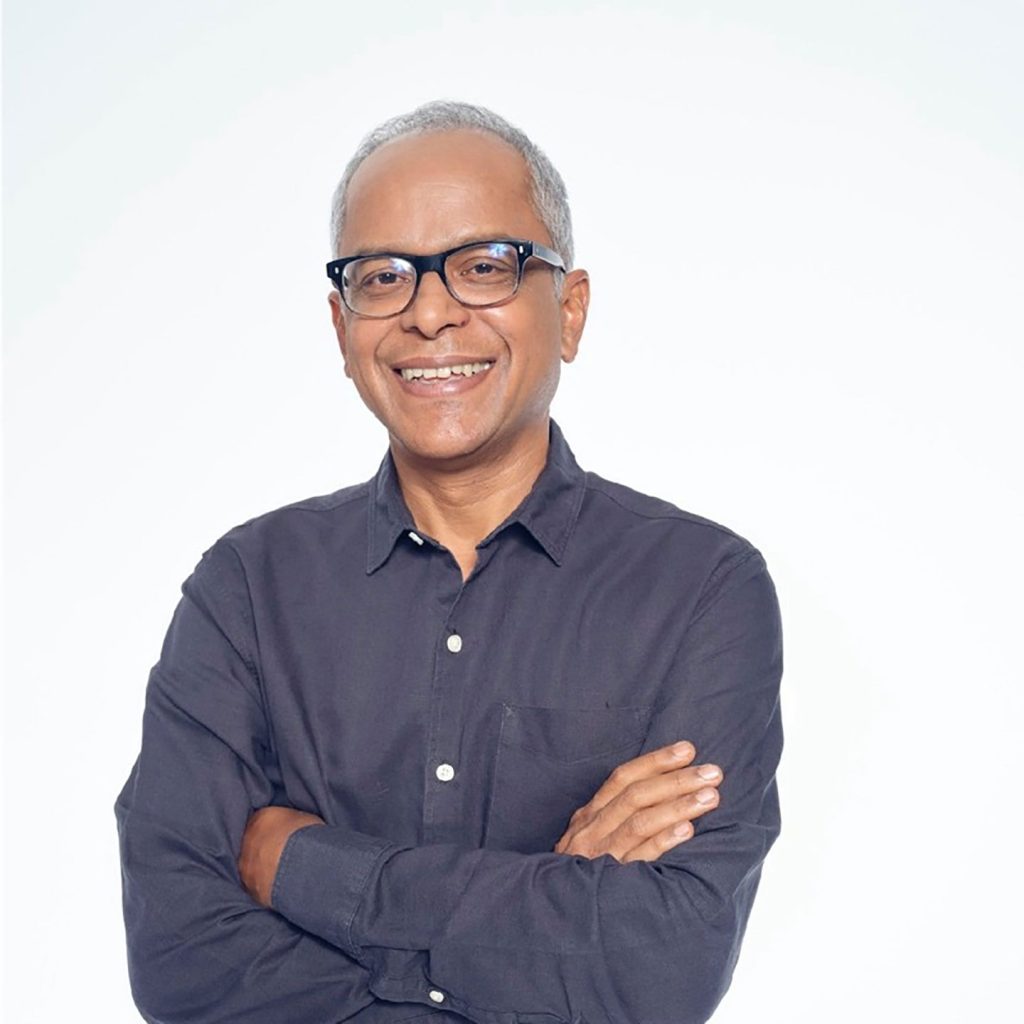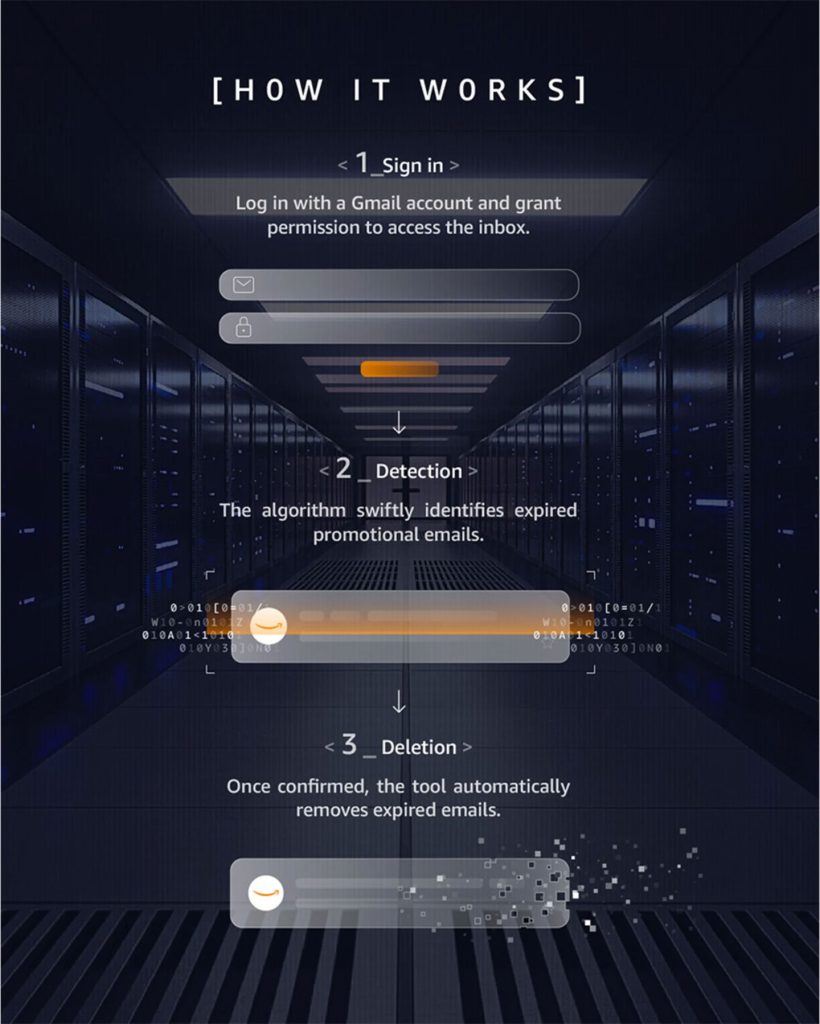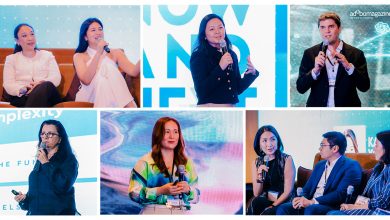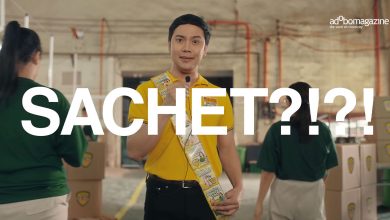
CANNES, FRANCE — At the Cannes Lions Festival of Creativity, the Innovation Lions is a highly anticipated category “where ground-breaking innovations, technology and problem-solving idea that turn imagination into impactful reality solutions” are showcased. Adobo Magazine sat down with Joji Jacob, Regional Chief Creative Officer of Havas South East Asia and North Asia, and Creative Partner and Cofounder of BLKJ Havas Singapore, to get his insights on the work and judging at this year’s Innovation Lions.
The entries in innovation covered a broad spectrum – brand-led innovations, product innovations, environmental innovations, societal innovations, fin tech, and technology, primarily entered by ad agencies, technology companies, and across brands. “There were massive projects from Google, a big campaign from Amazon, and there were small, cute, beautiful little campaigns from different parts of the world,” Joji mused.
In the Innovation Lions category where there is temptation to fall in love with tech and get sucked by technology, Joji resolved that in the jury, “We looked for ideas that is solving a problem, in the easiest way possible, that can scale, is affordable and not expensive, and has maximum impact.” He also reiterated that accessibility was important: “The selection of winners is based scalability, the simplicity of use, massive impact that even the poor can have access like in countries like Brazil and India.”
“We looked for ideas that changed the world and did some good. We were of the consensus that it was important to look for work that had impact with minimum means and with maximum impact.”
“I felt judging innovations was so much more rewarding than just watching the same film again, and again, and again, like a lot of other categories,” he shared. “When people are presenting, you get the get a feel for it, and then they test the products, and you get to touch and feel the product, which is all great.”
“Contrails: Making Flying More Sustainable with Google AI”

The case study for this campaign reads: Google has conducted research, in partnership with Breakthrough Energy and American Airlines, on one of the lowest-cost climate solutions to aviation emissions, powered by AI. This research is a significant proof point that commercial airlines can verifiably avoid contrails and thereby reduce their climate impact.
Using AI-based image recognition technology and satellite imagery, Google identified contrail forming regions and made slight adjustments to traditional flight paths that would avoid those areas.
Joji remarked the campaign as something mind blowing: “The results are phenomenal. Google, with their data, said they can reduce [the] carbon footprint [of air travel] by 32.3%. [Controlling an] airplane’s flight at a certain altitude when they fly into moisture creates [a] massive [contribution to] global warming. Google crunched all that data and discovered that it is better if a plane just lowers its altitude by, I think, 3,040 feet, and it does [not] create contrails anymore.”
“[Google] worked with American Airlines to do that. Yes, there is an increase [by] 2% [in] fuel consumption, but the carbon footprint offset is massive. They are now rolling it out and you can see the scale of the project. That’s beautiful.”
He added, “The company could have just said, ‘We can have all the bonuses based on this, let’s make money.’ But then what they did with this is completely altruistic. And that’s Google. I found out that Google employees can spend 20% of their time on [these] best projects.”
“Amazon Vanishing Emails“
Joji also noted Amazon‘s “Vanishing Emails” initiative which garnered a lot of attention from the Innovation jury members. “It is a beautiful campaign where you don’t have to get all the emails that offer deals and promotions, [and they] just sit in the inbox forever. That’s annoying and [carries a] massive carbon load as well. So they came up with this idea where your promotion emails just vanish after the promotional date is over.”
Created by VML for Amazon Web Services, the campaign tackled the environmental impact of increased CO2 emissions caused by email storage, effectively aiding the environment without adding extra steps for users.
“The team did an amazing job presenting. The client from Amazon was very passionate. […] You felt he was present and live, that he was talking to you. [You could] feel [it] in this body language, and he had the right tone inflection,” he mused.
“Voice 2 Diabetes”
The case study for “Voice 2 Diabetes” reads: India is home to the second-largest number of diabetes patients in the world. Despite the staggering number of diabetes cases, more than half remain undiagnosed due to various factors including distance, cost, and lack of resources. [To address this], KVI Brave Fund and creative agency Klick Health, Toronto launched the “Voice 2 Diabetes” tool, using vocal biomarker data to diagnose Type 2 diabetes based on the analysis of a person’s voice. This innovation harnesses AI and machine learning techniques to detect subtle vocal changes that are imperceptible to the human ear. By incorporating features like pitch and intensity changes, the tool successfully distinguishes between individuals with and without Type 2 diabetes.
Joji noted the campaign’s simplicity as a vital part of its effectiveness: “It was very simple in terms of usage, the simplicity to the user — especially for [countries] like India or Brazil because even the poor can use it. Everyone has a mobile phone. You don’t have to speak English; [you can] speak in your own language. We all just gravitated towards it.”
“With the Voice To Diabetes campaign, the Mayo Clinic said they piloted [it] in India, although it was developed in Canada,” he furthered. “We (the jury) saw the potential of it really being applied immediately. You can see the potential for impact and scale.”
“And the guys who presented it did an amazing, amazing job. They got someone from Klick Health whom you could tell was so passionate. The clinical trial was conducted by him.”
“Three Words”
According to its case study page, “Three Words” is a life-saving clause in AXA’s home insurance contracts, providing urgent re-housing for women in danger. An insurance innovation based on a contract that all French citizens must already have by law: their home insurance. It aligns with the Innovation Lions’ ethos of turning imagination into real-world solutions, offering a scalable model for industry-wide adoption.
Joji explained it as such: “In France, when you buy a house or become a homeowner, it’s compulsory to buy insurance against fire and floods. And what AXA did is it acts as the service where — for example, if somebody’s house is on fire — they provide you alternative accommodation, transportation, et cetera; similarly in floods. So what AXA did very cleverly was they just added three words in the clause to cover domestic violence.”
“The impact of it can be massive. For example, [if] Jane is being abused, all l she needs to do is call AXA, and she’s automatically covered. As they are already experts in [relocations], they can move the victim of domestic violence out, provide counseling [and] transportation.”
“It is excellent! A beautiful campaign,” Joji expressed. “This campaign is on its soft launch and we know that for it to have mass adoption, for this to be implemented, it will take a few more steps. If the brand is willing to actually move that needle, it is generally very hard because you need a lot of buy-ins.”
“But because they already had this fire and flood expertise, it seemed a natural progression for them to touch [on] the issue of domestic violence. In this case, with minimum means, [they can achieve] maximum impact.”
Joji on the Innovation Lions category
“You get a feel of the sincerity of the project, which is why in Innovation, entrants in all categories must be in a position to fully demonstrate any technology entered. Concepts alone [are] not permitted. And the guys who presented did an amazing job. You could tell [that] they were really passionate about the work,” Joji shared.
He went on to enumerate a few more observations from this year’s entries: “Some clients, we observed, were more interested in the project than the award. It was amazing to see that brands — especially tech brands, — [used] facts and statistics, while ad agencies used objectives.”
“There was a lot of use of AI, obviously, at least when we were first starting to judge. Pretty much every second case used AI, and [it] is a reflection on how entrenched AI is in today’s world,” he added.
Ultimately, Joji put the spotlight on brands and their role in supporting creative ideas and purposeful campaigns. “I came out feeling that the onus is on brands to make many of these ideas come alive. Agencies have done their bit. They’ve come up with the idea. They made a case for it. But it can’t scale without a brand,” he underlined.
“[But] We’ve seen so many cases where [there] are amazing ideas and I came out feeling really hopeful about our industry. I think we’re on the cusp of something bigger.”








